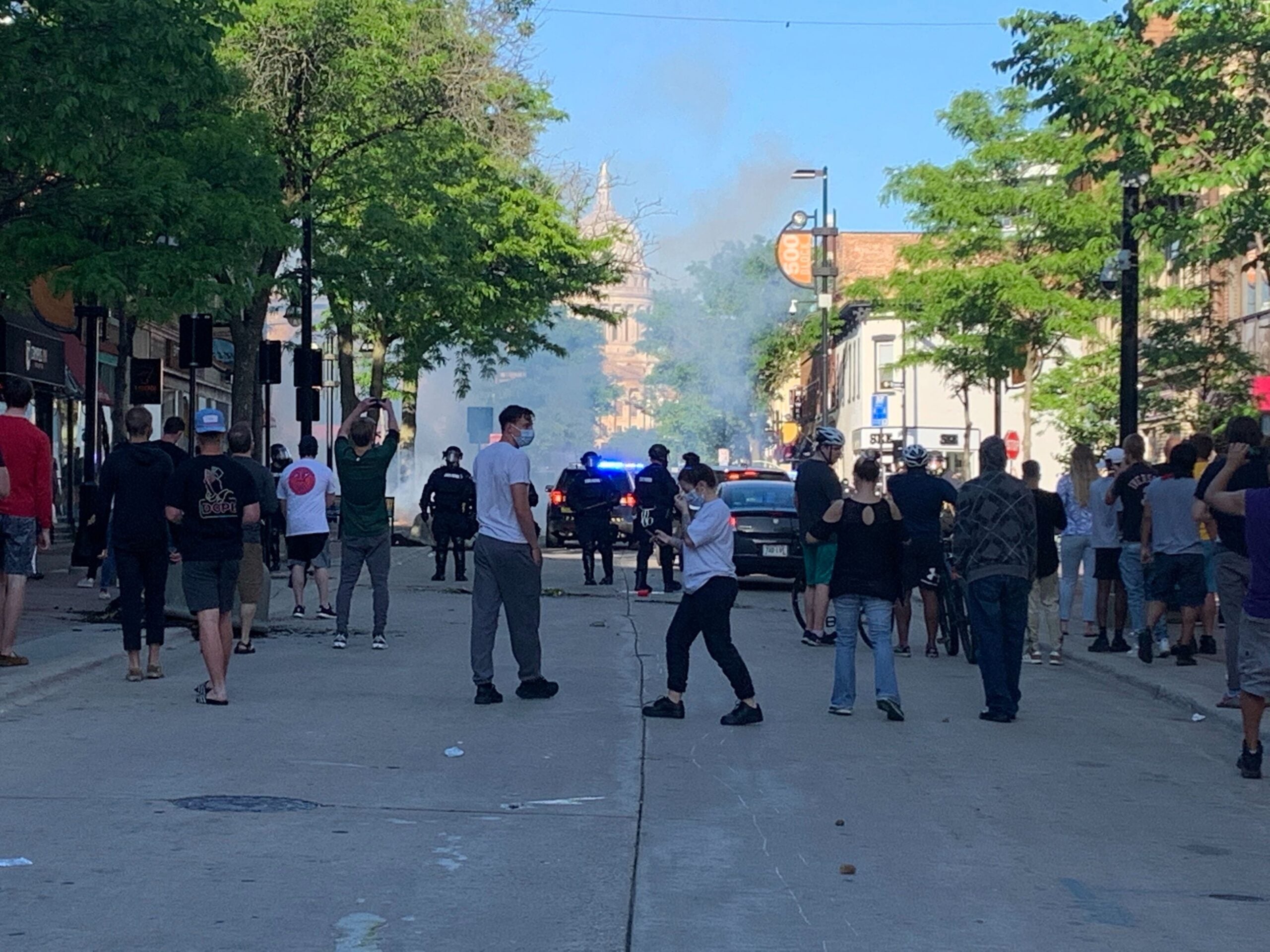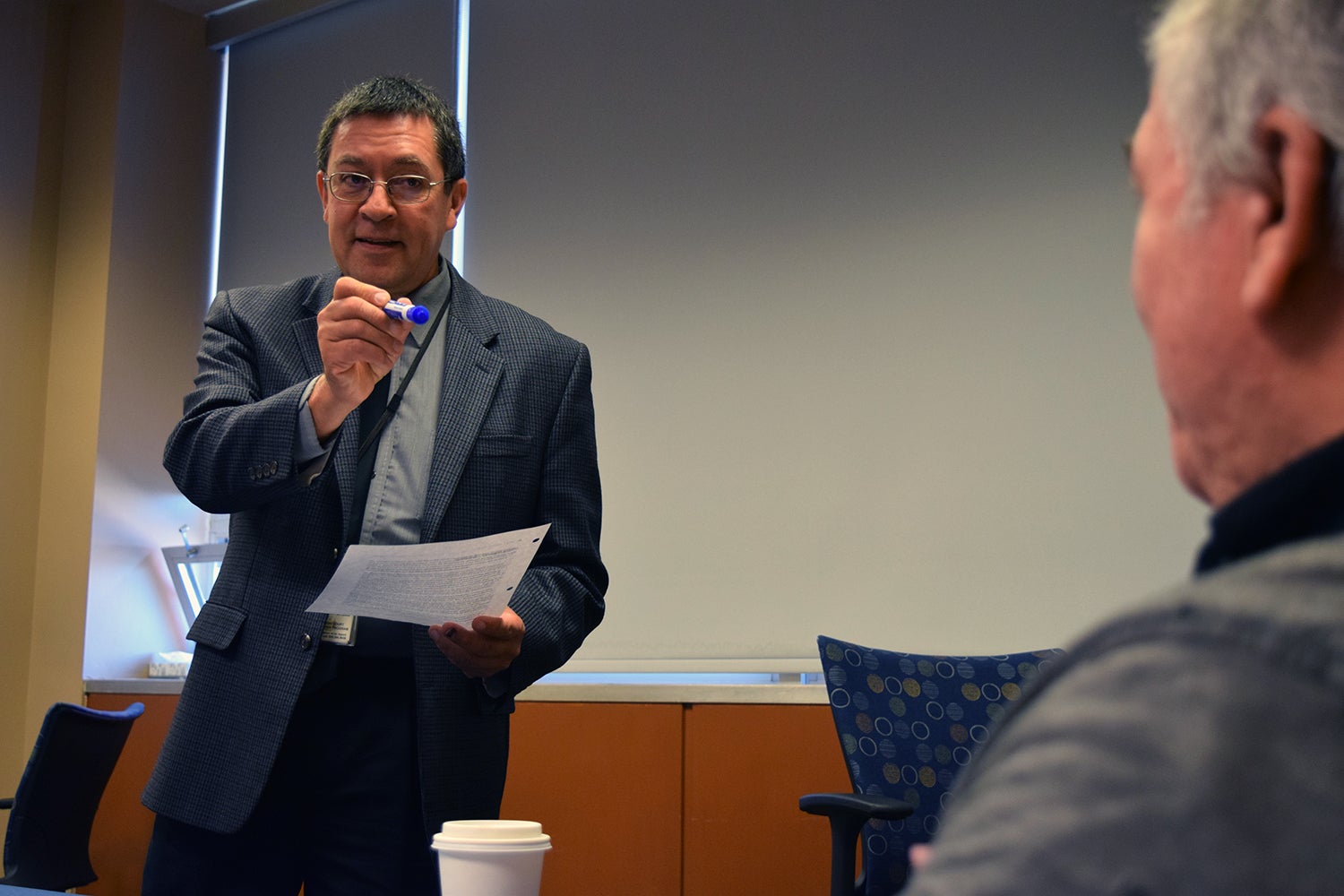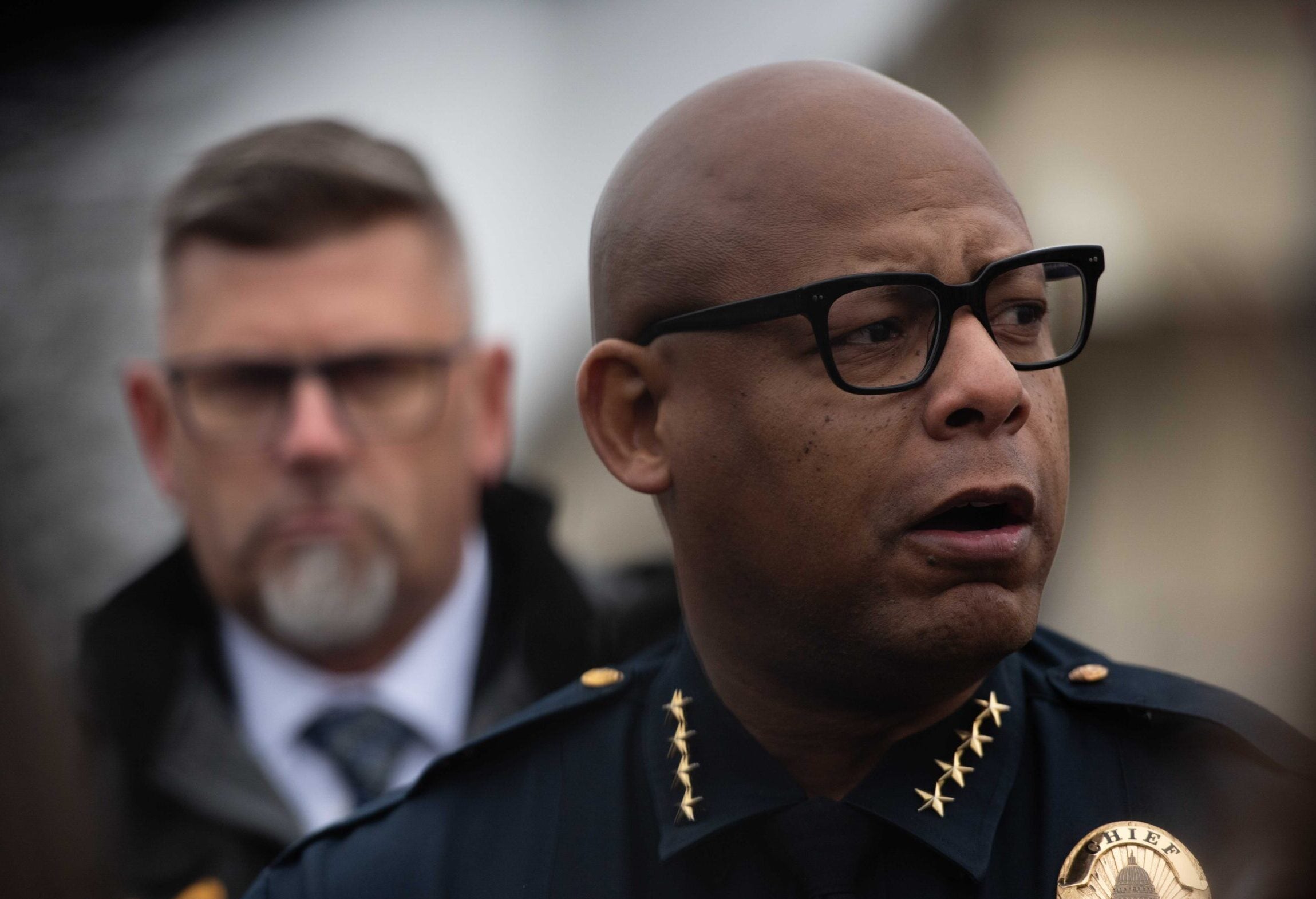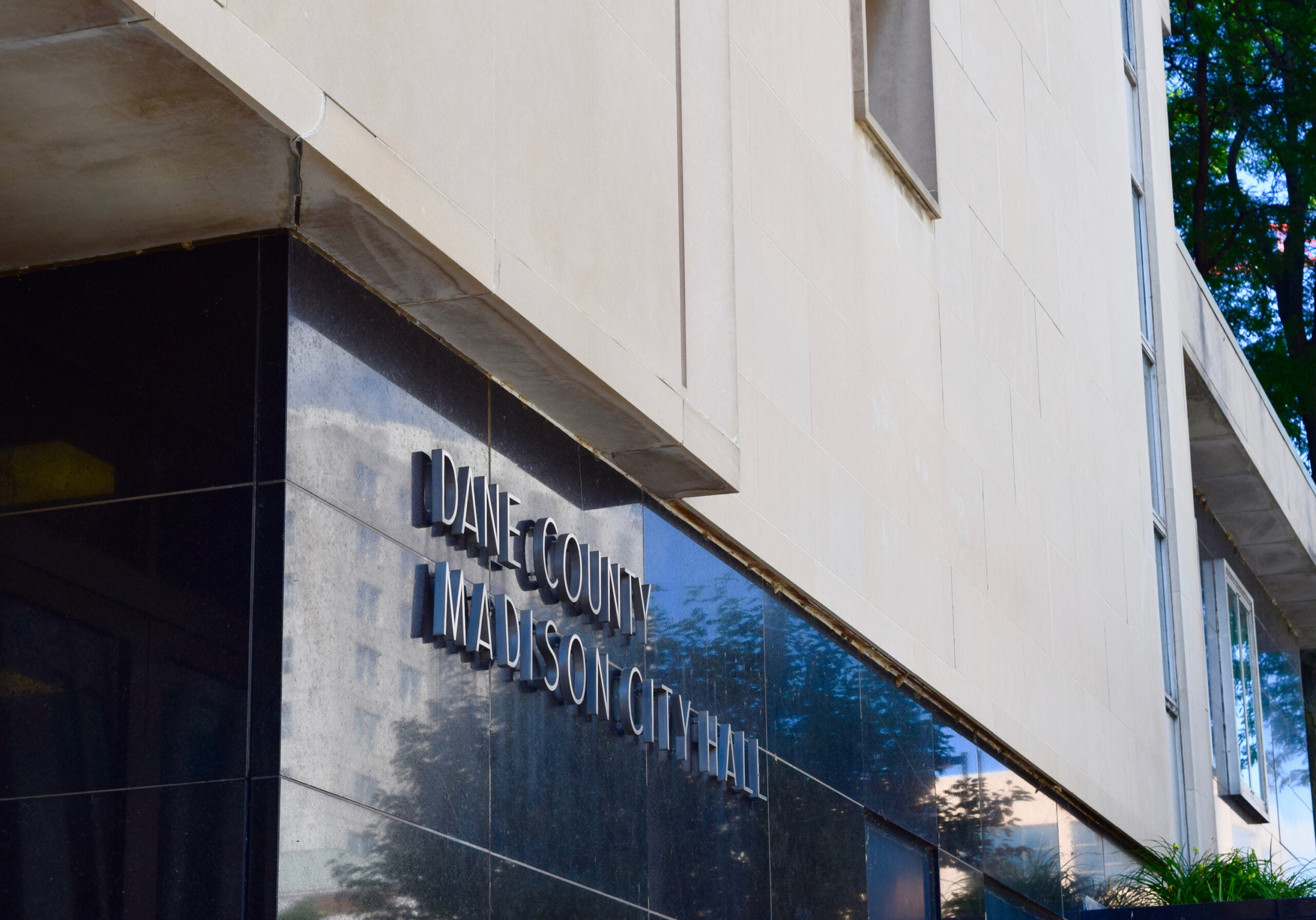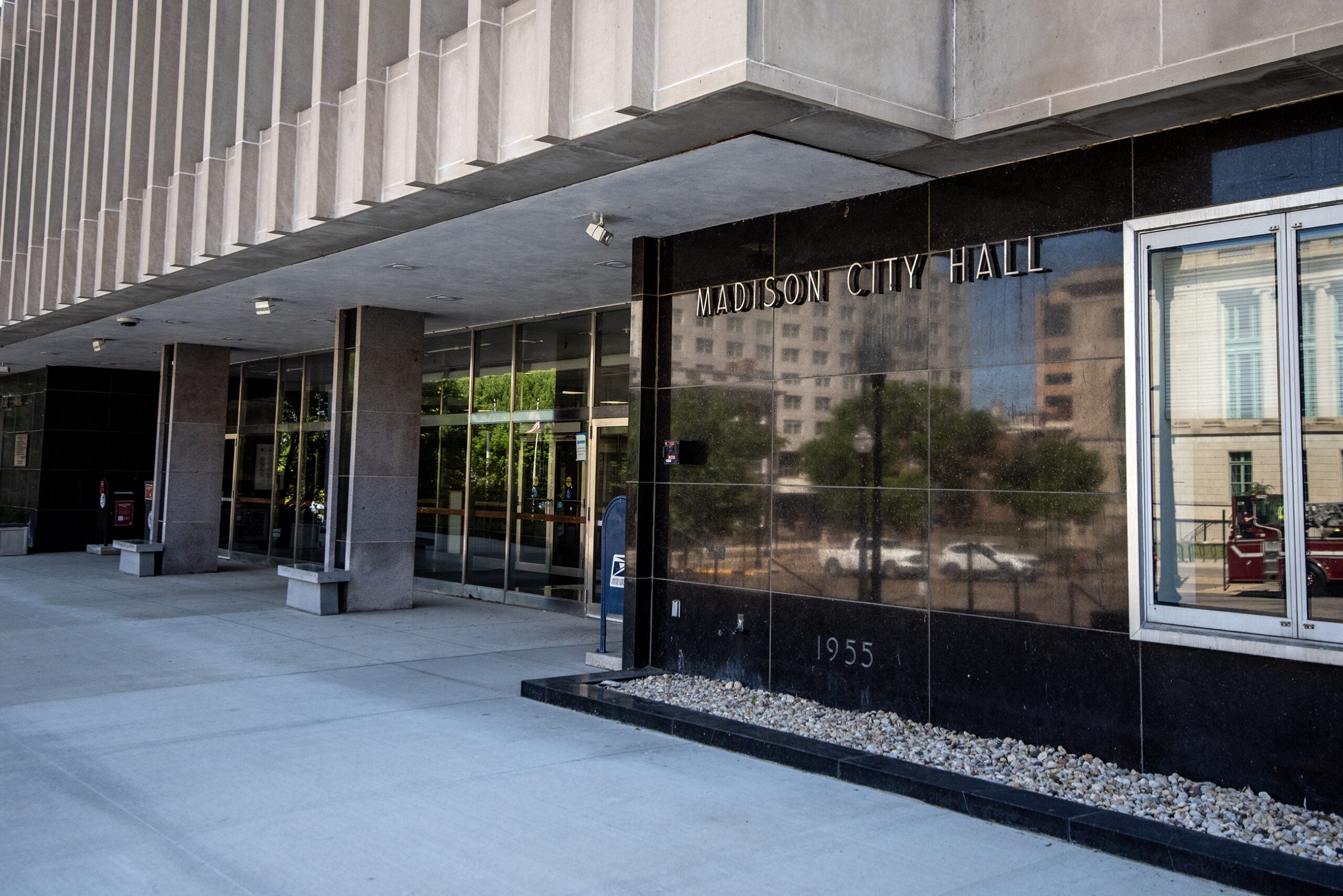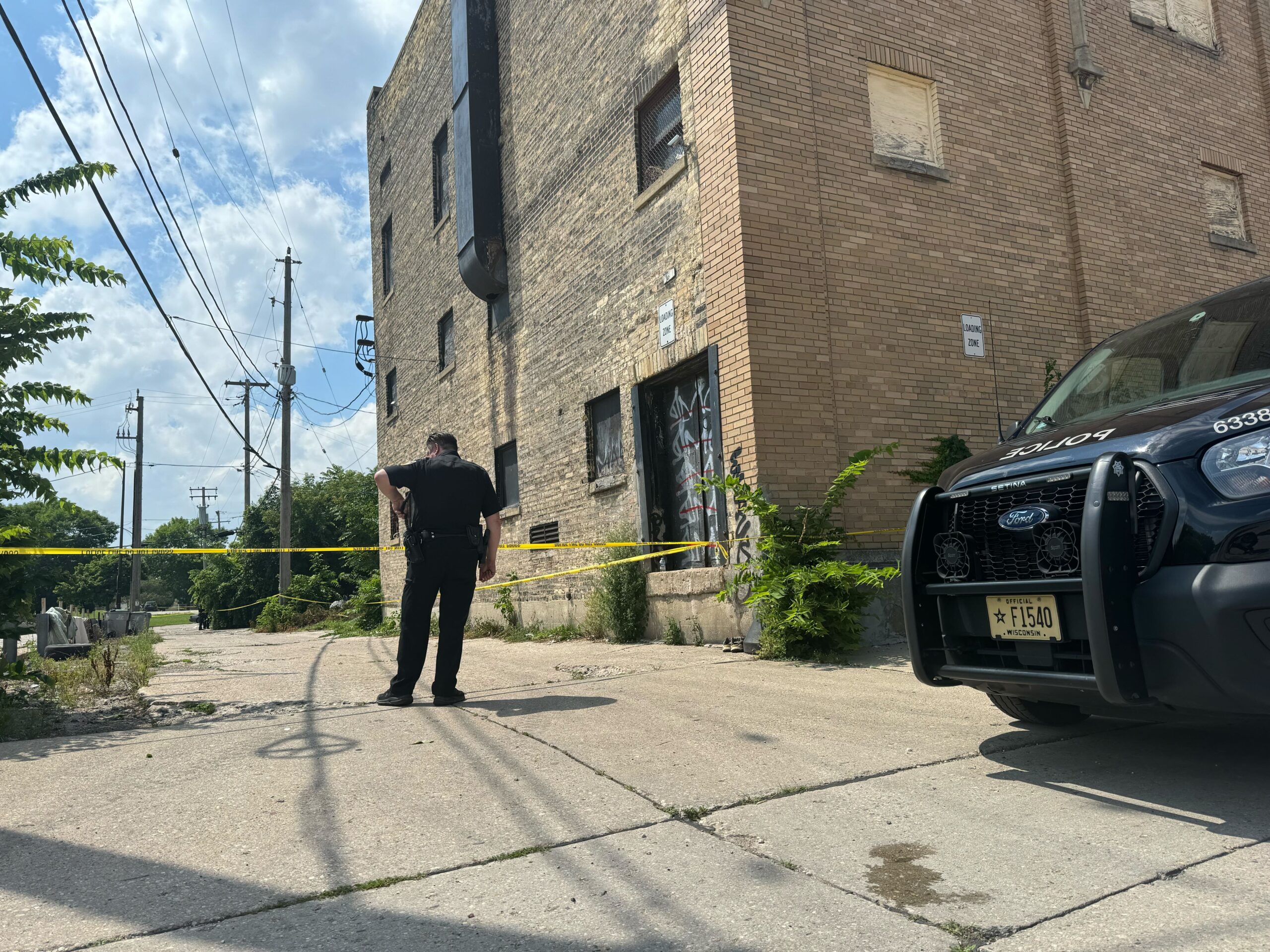An independent investigator will need to produce a report the next time Madison police use tear gas to control crowds.
The ordinance approved by the city’s Common Council on a 14-4 vote Tuesday night is a softened version of an outright ban on tear gas, originally proposed by Alder Juliana Bennett.
Bennett’s proposal would have prohibited police from using tear gas, pepper spray, mace and projectiles such as foam bullets to subdue crowds. It also would have applied to any police departments assisting the city under mutual aid agreements, drawing widespread criticism from law enforcement leaders.
Stay informed on the latest news
Sign up for WPR’s email newsletter.
While the adopted version won’t stop police from using tear gas, it will require an independent police monitor to begin a review within 30 days after the gas is used. The Common Council created the police monitor position in 2020 to serve as a check on the police department, although a civilian-led oversight commission has yet to appoint someone to fill the position.
In 2020, police in riot gear used tear gas against crowds in downtown Madison after peaceful demonstrations against racism turned destructive with some people breaking windows, vandalizing property and occasionally setting fires.

Bennett, a University of Wisconsin-Madison student, told the council Tuesday she vomited after being tear-gassed by police while protesting in Madison during the summer after the murder of George Floyd by a Minneapolis police officer.
“There was a group of a few agitators in the crowd, so the police took that as an opportunity to gas us in en masse,” she said. “That’s the thing with these weapons, is that they’re indiscriminate.”
Madison resident Kim Richman told the Common Council restricting tear gas would leave police only with more dangerous options like “fist, batons, tasers … and firearms” for responding to riots.
“This proposed ban is incredibly regressive, not progressive,” Richman said. “Reducing non-lethal force makes lethal force more likely.”
In a blog post earlier this month, Madison’s Police Chief Shon Barnes said he was “gravely concerned” about the proposal, arguing Madison police use tactics like tear gas as a “last resort.”
“I am hopeful that we will never see the type of violence and destruction displayed during the January 6 insurrection in our City, but I ask that you not limit our use of the most appropriate tools if we do,” wrote Barnes, who’s been leading the department since February 2021.
The Wisconsin Professional Police Association, the Badger State Sheriff’s Association, and the Dane County Chiefs of Police Association all came out against earlier versions of the ordinance.
Eric Toney, the Fond du Lac County district attorney and a Republican candidate for Wisconsin attorney general, joined the criticism earlier this week, arguing the negative effects of restrictions on tear gas could extend beyond Madison’s borders.
“We have law enforcement agencies from across Wisconsin that have said they will not send mutual aid to the city of Madison because of this proposed ordinance that makes people that want to peacefully protest less safe, that makes residents and community members here in Madison less safe,” Toney said at a downtown Madison new conference.
A campaign spokesperson for Democratic Attorney General Josh Kaul declined to comment on Madison’s proposal ahead of the Common Council’s vote.
Wisconsin Public Radio, © Copyright 2025, Board of Regents of the University of Wisconsin System and Wisconsin Educational Communications Board.
